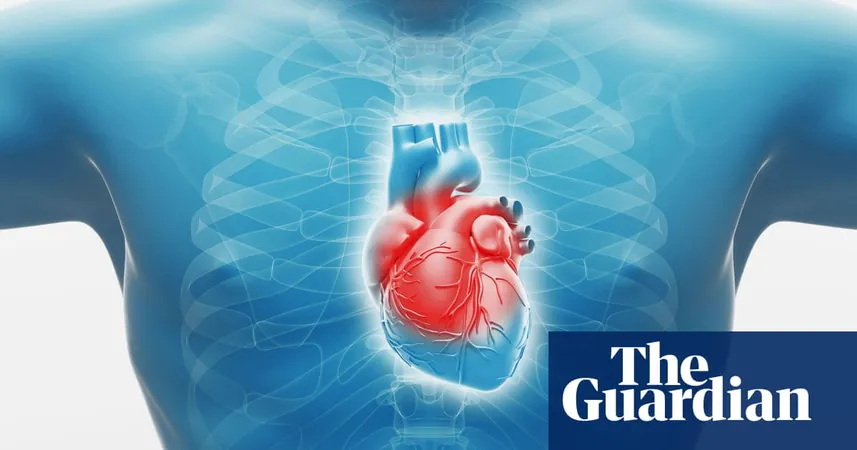
Revolutionary Combo of Two Affordable Drugs Could Slash Heart Attack Risks
2025-04-14
Author: Jia
A Game-Changer in Heart Attack Recovery
Imagine a world where thousands of heart attacks and strokes could be thwarted, potentially saving countless lives with just a simple pill regimen. New research from Imperial College London and Lund University reveals that combining two inexpensive drugs may be the key to drastically reducing the risk of severe cardiovascular events following a heart attack.
The Silent Threat of Heart Attacks
Cardiovascular disease remains the leading cause of death globally, with heart attacks topping the list of acute medical emergencies. Survivors often face an alarming risk of recurring events, particularly in the first year, as their blood vessels become increasingly vulnerable to dangerous clots.
The Power of Pairing: Statins and Ezetimibe
The groundbreaking study demonstrated that administering a dual therapy of statins and ezetimibe—a cholesterol-lowering agent—significantly lowers the chances of experiencing another heart attack, stroke, or even death. Professor Kausik Ray, a prominent figure in the research, stresses the urgent need for healthcare systems worldwide to adopt this combined treatment strategy to avert needless fatalities.
Transforming Treatment Protocols for Better Outcomes
The researchers analyzed data from 36,000 heart attack patients treated between 2015 and 2022, employing sophisticated statistical techniques to mimic a clinical trial setup. They found that patients who received both statins and ezetimibe within the first 12 weeks saw a marked improvement in their health outcomes compared to those treated later or only with statins.
A Simple Solution with Major Implications
Ray insists that modifying existing treatment guidelines could lead to substantial improvements in patient care. The cost of rolling out this strategic dual therapy stands at a mere £350 per patient annually—an inconceivable bargain when weighed against the ongoing costs of treating heart attacks.
A Call for Global Guidelines to Change
Margret Leosdottir from Lund University echoes the sentiment, advocating for swift changes to international treatment protocols to alleviate unnecessary suffering. Currently, many heart attack patients don't receive this effective combo due to restrictive practices aimed at preventing side effects.
The Time to Act is Now
Leosdottir argues the benefits of this combined therapy far outweigh potential risks, and with both medications showing minimal side effects and widespread availability, the medical community must reconsider their approach. By ensuring patients receive this dual therapy promptly following a heart attack, we can significantly reduce the risk of further complications and save lives.



 Brasil (PT)
Brasil (PT)
 Canada (EN)
Canada (EN)
 Chile (ES)
Chile (ES)
 Česko (CS)
Česko (CS)
 대한민국 (KO)
대한민국 (KO)
 España (ES)
España (ES)
 France (FR)
France (FR)
 Hong Kong (EN)
Hong Kong (EN)
 Italia (IT)
Italia (IT)
 日本 (JA)
日本 (JA)
 Magyarország (HU)
Magyarország (HU)
 Norge (NO)
Norge (NO)
 Polska (PL)
Polska (PL)
 Schweiz (DE)
Schweiz (DE)
 Singapore (EN)
Singapore (EN)
 Sverige (SV)
Sverige (SV)
 Suomi (FI)
Suomi (FI)
 Türkiye (TR)
Türkiye (TR)
 الإمارات العربية المتحدة (AR)
الإمارات العربية المتحدة (AR)